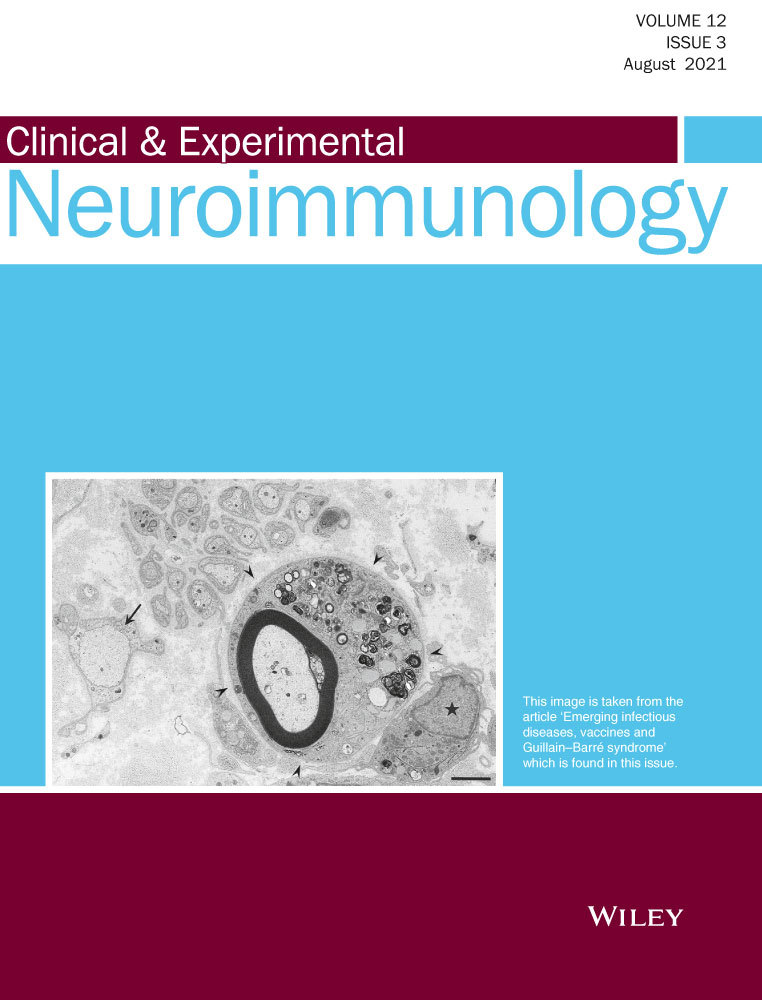Pure red cell aplasia and re-aggravation of myasthenia gravis as a result of early reduction of steroid and immunosuppressant after starting eculizumab: A case report
Abstract
Background
Eculizumab, a humanized monoclonal antibody against complement protein C5, has been approved for the treatment of myasthenia gravis (MG) in Japan since 2017. However, there are few reports on reducing the dose of prednisolone (PSL) and immunosuppressants after eculizumab administration.
Case presentation
A 78-year-old woman with thymoma-associated MG received an extended thymectomy, and was subsequently treated with PSL and tacrolimus (TAC) for 5 years. She was admitted to the hospital for dysarthria and dysphagia. She developed dyspnea and required mechanical ventilation. High-dose immunoglobulin therapy, high-dose methylprednisolone therapy and plasmapheresis were carried out. She was weaned off the ventilator, but dysarthria and dysphagia remained. Meanwhile, eculizumab improved her symptoms significantly. A month after reducing the dosage of PSL and TAC, cervical muscle weakness was observed, followed by pure red cell aplasia. After increasing her PSL and TAC dosage, the patient’s symptoms improved.
Conclusions
Eculizumab might improve the acute phase of MG symptoms, but early reduction of PSL and TAC can aggravate MG pathology and lead to pure red cell aplasia. Autoimmune mechanisms other than the complement-mediated mechanism might be involved in the development of pure red cell aplasia. We suggest that physicians should not reduce PSL and immunosuppressants quickly after eculizumab administration.




